Publications
Articles, publications, books, tools and multimedia features from the U.S. Institute of Peace provide the latest news, analysis, research findings, practitioner guides and reports, all related to the conflict zones and issues that are at the center of the Institute’s work to prevent and reduce violent conflict.

The Crowd Who Would Be King
Technology is connecting people all over the world, giving them new power and a stronger voice. But is it making government any better?
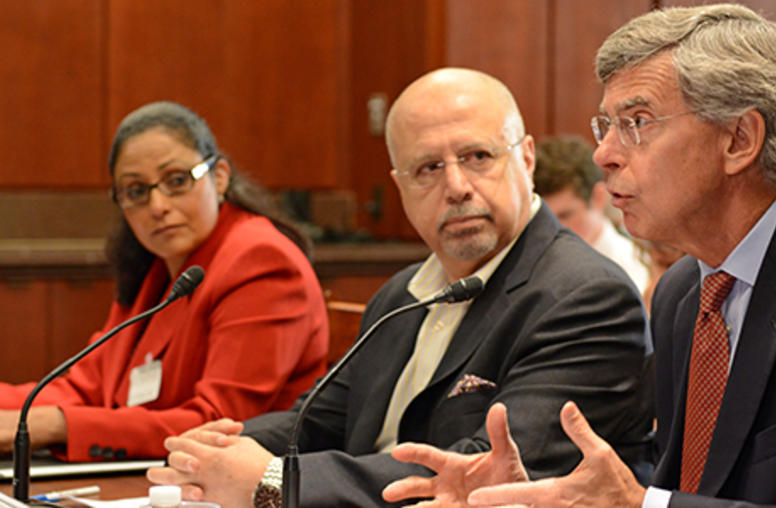
Egypt, Tunisia’s Opposite Paths Require Divergent Response, USIP’s Taylor Says
Egypt and Tunisia represent opposite ends of the spectrum in the evolution of their politics since the Arab Spring, U.S. Institute of Peace Vice President and former Ambassador Bill Taylor told a government panel this week. “Tunisia has demonstrated remarkable maturity and commitment to the ideal of political inclusiveness,” Taylor said. “Egypt has not.”
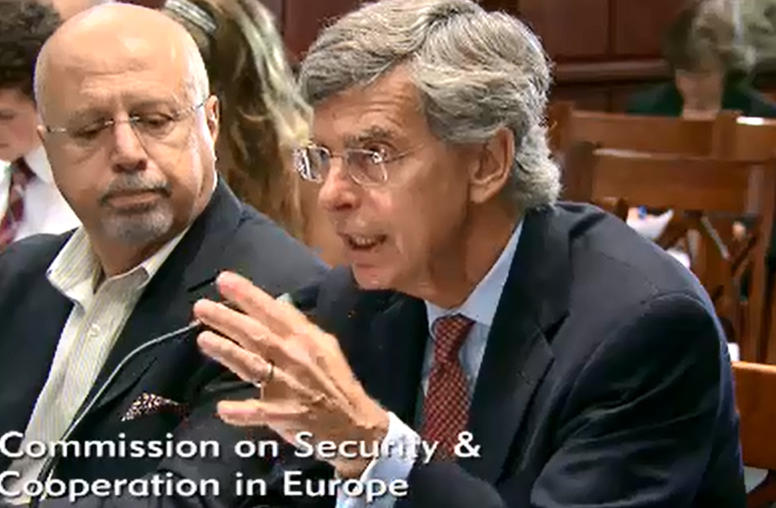
Political Pluralism in the OSCE Mediterranean Partners
William B. Taylor, vice president for Middle East and Africa, testifies before the United States Helsinki Commission on OSCE Mediterranean Partners.
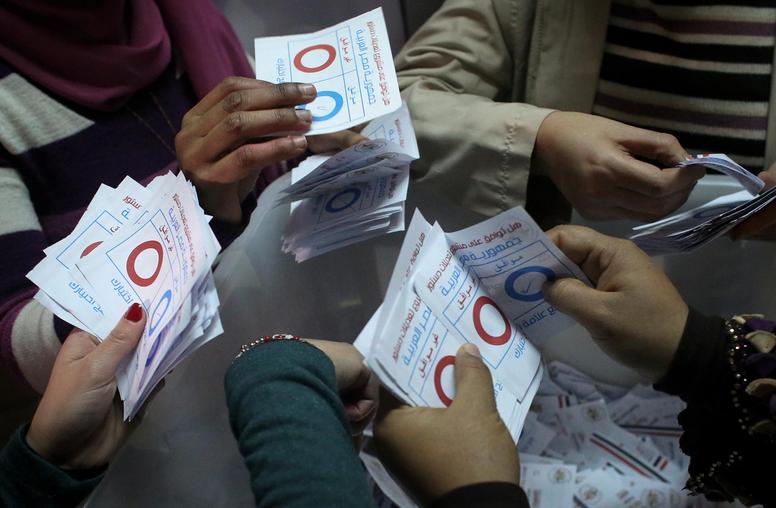
Q&A Egypt’s Post-Referendum Mood
Egyptians went to the polls on Jan. 14-15 to vote on a new constitution, the third referendum on a charter since the spring 2011 uprising that ultimately toppled authoritarian President Hosni Mubarak. Manal Omar, USIP’s associate vice president for the Middle East and Africa, has been on the ground in Cairo and discusses the significance of the vote, the issues involved, and the prospects for Egypt’s political system going forward.
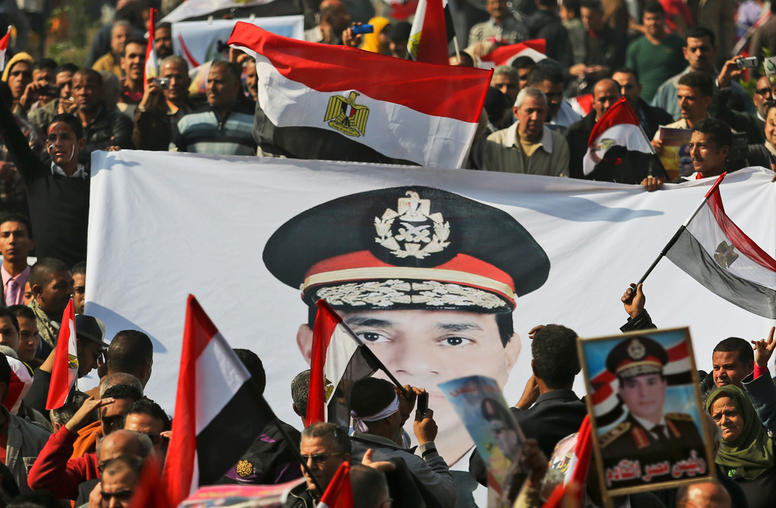
'We Want to Move On'
CAIRO — The first day of a much-hyped constitutional referendum confirmed two things that most Egyptians already knew. First, this third referendum in as many years has little to do with the actual document being voted on. And second, there is virtually no question of what the result will be: The constitution will pass by a landslide.
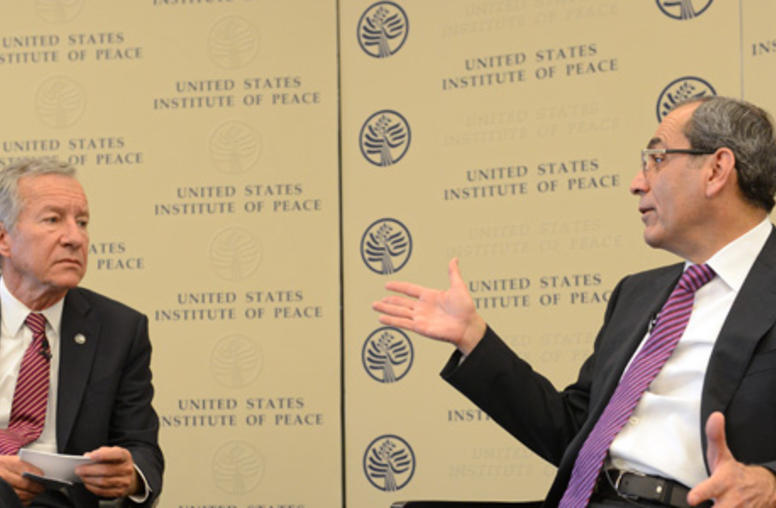
Amid Violence, Egypt’s Interim Regime Faces Skeptics on Pledges of Dialogue
Egyptian Ambassador to the U.S. Mohamed M. Tawfik pledged that his interim government would increase public discussion about a revised constitution in the coming weeks as a 50-member commission finalizes a draft for a planned referendum in December. But amid violence, polarization and intimidation, the co-founder of a civic movement said the interim regime has failed to deliver its promised dialogue.
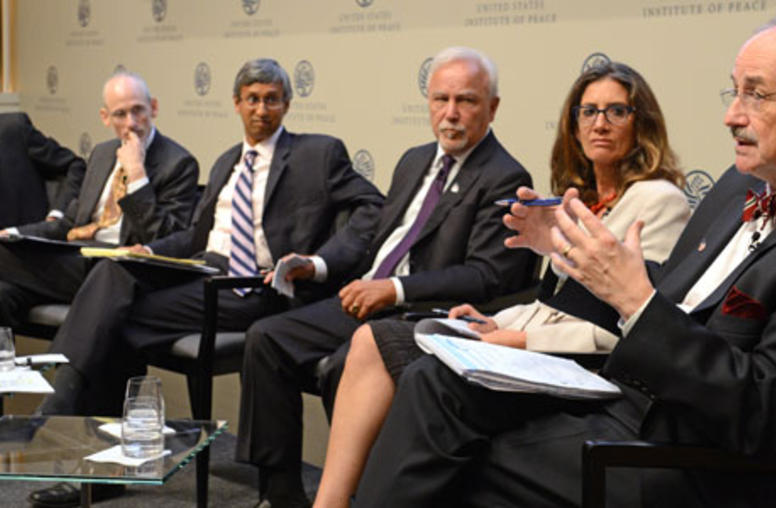
USIP Hosts International Gathering on Water Security and Conflict Prevention
Assuring access to water of adequate quantity and quality in the face of increasing challenges poses a growing risk of future conflicts. But in preventing any outbreak of conflict, better water management can play a vital role in building peace and cooperation, a variety of officials and specialists said at the Water Security and Conflict Prevention Summit held at the U.S. Institute of Peace (USIP) on September 10.
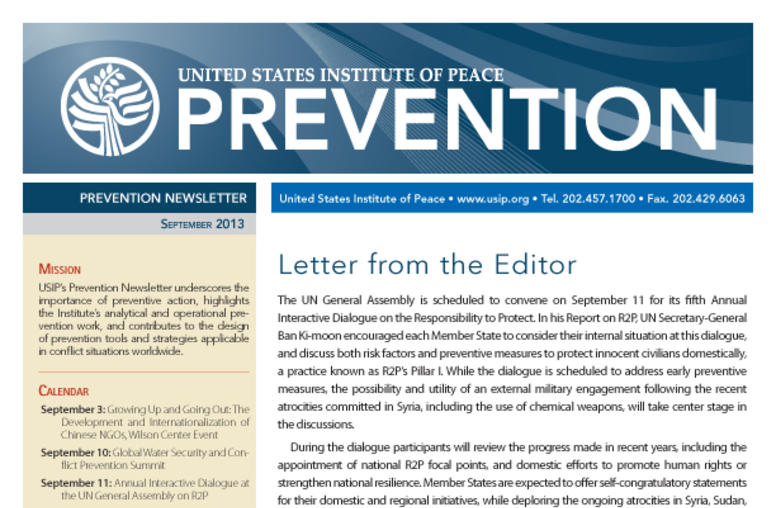
USIP Prevention Newsletter - September 2013
The September 2013 Prevention Newsletter features a Q&A with Deputy Assistant Secretary of State Victoria Holt on Peacekeeping and Atrocity Prevention, and highlights the role of Track 1.5 Dialogues as an instrument for conflict prevention.
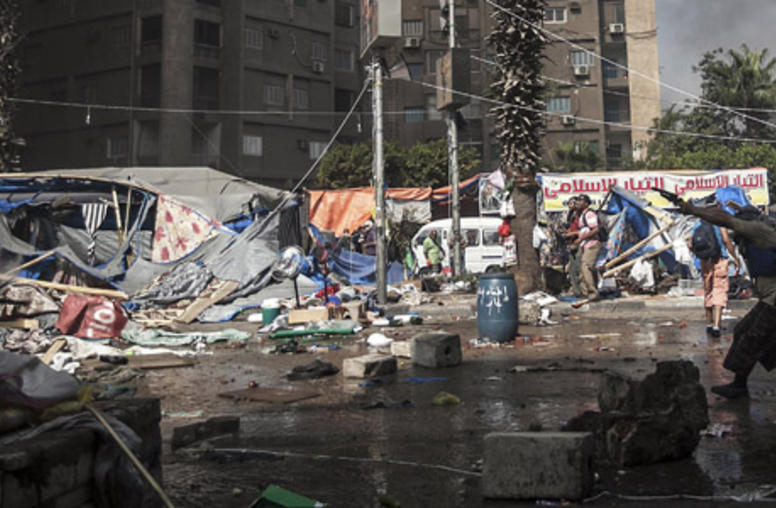
Egypt’s Political Chasm Reflects Miscalculation of Public Support
The standoff in Egypt that resulted in yesterday’s lethal crackdown by the military on Muslim Brotherhood protestors may reflect a dangerous miscalculation by leaders on both sides about how much public support they have and how long they can keep it, said U.S. Institute of Peace expert Manal Omar.

The Crackdown on Media in Syria, Egypt and Turkey
With the ouster of President Mohamed Morsi in Egypt, the ongoing civil war in Syria, and the protests in Turkey, a common reaction by governments has been to directly threaten the openness and vibrancy of media in an effort to overpower the messages of activists. But the tactics that these governments employ can differ widely.